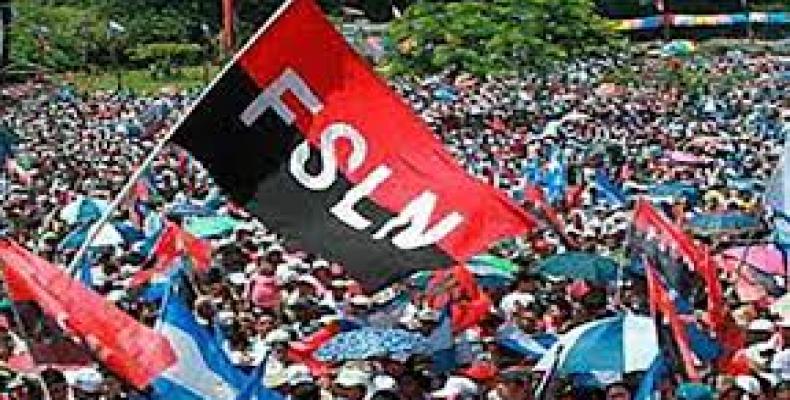Managua, September 14 (RHC)-- With general elections looming in the country, Nicaraguan President Daniel Ortega widened his lead in voter preference to 61 points over his closest rival, according to a survey released in Managua, the Nicaraguan capital.
Daniel Ortega, the historic leader of Sandinista National Liberation Front, the FSLN, totaled 65.7 percent of the vote in a poll by M & R Consultores. The firm conducted the survey between August 26 and September 3 with an error margin of 2.24 percent.
The right-wing opposition and former contra rebel Maximino Rodriguez scored a distant second with 4.4 percent and coming in third was lawyer Pedro Reyes of the Independent Liberal Party, with 2.2 percent, according to the survey. A little over 25 percent declined to answer.
According to analysts, Daniel Ortega's popularity has remained high after nearly a decade in power thanks to prudent management of the economy and social programs established with the support of Nicaraguan allies Venezuela and Cuba.
Rodriguez was a member of the U.S.-backed "contras" -- short for contrarevolucionarios or counterrevolutionaries -- rebels who were responsible for countless acts of terrorism, including mass killings. The group received funding and arms from the U.S. government to destabilize the left-wing government following the victory of the Popular Sandinista Revolution in 1979.
Scheduled for November 6, 2016, voters will also elect 90 legislators to the Central American nation's National Assembly.
Daniel Ortega and Frente Sandinsta Ahead of Nicaraguan Opposition by 61 Points

Related Articles
Commentaries
MAKE A COMMENT
All fields requiredMore Views
- Israel's hawkish minister, husband accused of sexual abuse by daughter
- U.S. Colonel suspended for opposing Trump's military threat against Greenland
- Mexican president says her country will not have diplomatic relations with Ecuador while Noboa is president
- U.S. immigration judge rules Columbia University activist Mahmoud Khalil can be deported
- Harvard professors sue Trump administration over funding threat tied to pro-Palestine activism

